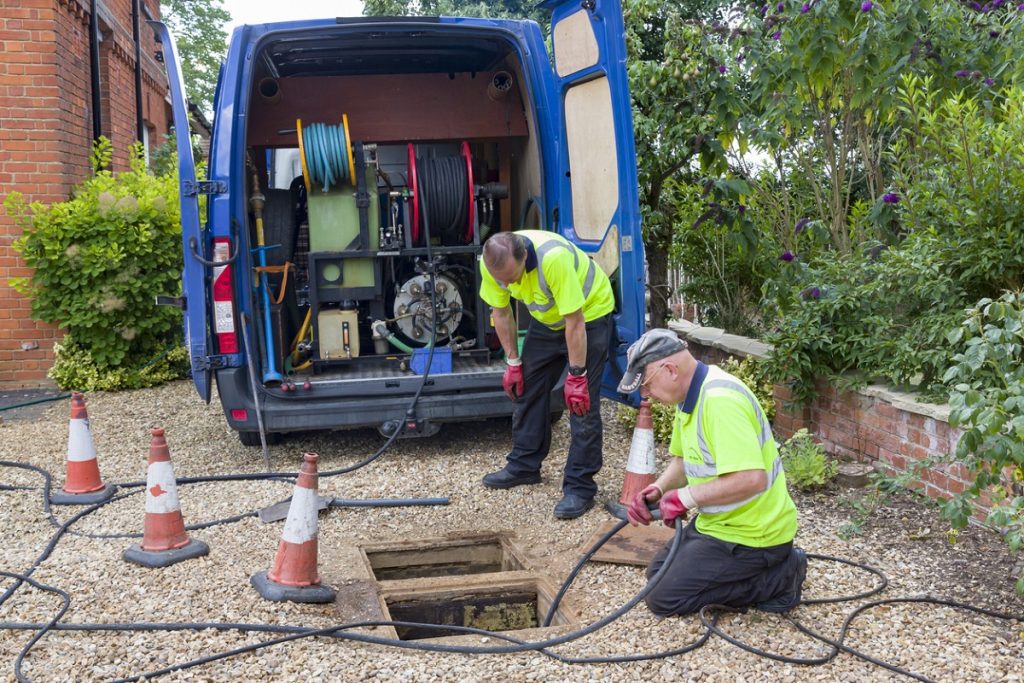All homeowners should schedule drain cleaning service at least once each year. Regular drain cleaning sloughs off pipe debris and gives both solid waste and wastewater ample room to move. If you haven’t cleaned your drains in quite some time, there’s a good chance that they’re coated in biofilm. This slimy, dark-colored substance forms as bacteria, fungi, yeasts and algae that feed on drain waste and multiply.
What’s So Dangerous About Biofilm?
If you encounter biofilm in your kitchen or bathroom sinks, beware. The biofilms in plumbing systems are known to harbor exceedingly dangerous microorganisms such as:
- Staphylococcus epidermidis
- Escherichia coli
- Enterococcus faecalis
- Streptococcus viridans
These disease-causing agents are infinitely more robust when found in biofilm than they are when present on common, high-touch surfaces. In fact, some bacteria in biofilm can be up to 1,000 times less susceptible to antibiotics and antimicrobial solutions such as bleach-based sanitizing sprays.
Biofilm Makes Drains Stink
If your drains exude foul, funky odors, biofilm is the most likely reason. The black, slimy coatings you encounter are a glue-like material excreted by microorganisms. In part, this extracellular polymorphic substance (EPS) accounts for the heartiness of germs in biofilm. It also allows biofilm to cling and adhere to hard surfaces like drains, pipe interiors and plumbing fixtures.
While feeding on drain debris, the pathogens in biofilm excrete smelly waste in the form of volatile sulfur compounds (VSCs). Like all things sulfurous, biofilm waste often smells like rotten eggs, spoiled cabbage, old garlic or feces.
This is one of many reasons why having dirty drains can make your entire home feel dirty even when all sinks, tubs, shower pans and other surfaces are spotless. Rank drain odors can permeate the air, and they’re often impervious to plug-in air fresheners, room freshening sprays, scented candles or other normally pleasant-smelling interventions.
The Germs in Biofilm Don’t Stay Put
Even if biofilm is flourishing deep within your drains or pipes and well out of sight, it’s still a major health concern. The same bacteria that excrete biofilm can find their way onto high-touch surfaces and frequently used items like faucet handles, kitchen sponges and eating utensils.
If you or other members of your household are battling recurring problems with strep throat, diarrhea or stomach aches, dirty, biofilm-coated fixtures and drains could be the culprits. A single dropped toothbrush or piece of fruit can transfer biofilm and all the pathogens it contains into human mouths.
Sluggish, Slow-Moving Drains Compound Problems With Biofilm
Biofilm accumulates in dirty drains. Slow-moving drains tend to be extremely dirty. Drains that are coated in biofilm drain even more slowly still. The only way to break this vicious cycle is by having your drains cleaned.
Drain cleaning flushes out biofilm and the trapped debris that pathogenic organisms feed on. For professional drain cleaning in Brighton, CO, get in touch with our team at Royal Services Plumbing today.

